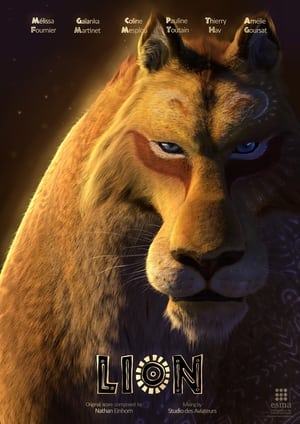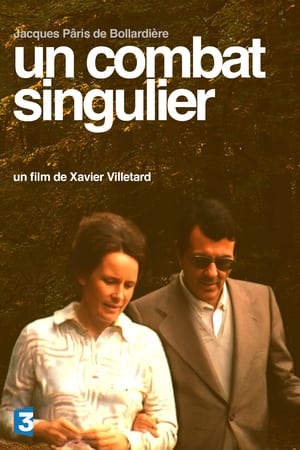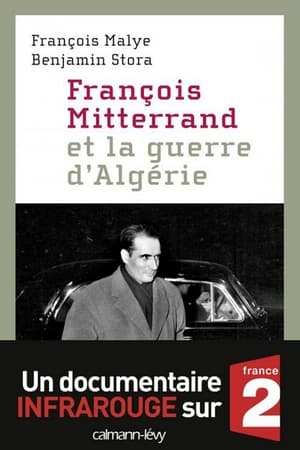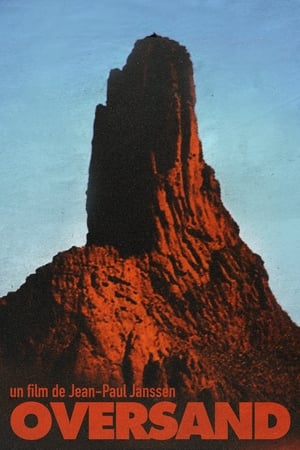
Paroles d'un Prisonnier Français de l'ALN(2010)
The image of French prisoners was very often evoked in Algerian cinema and literature, but until today, no Algerian or even European report or documentary had given voice to one of these French prisoners of the war of Algeria. In the interest of truth and writing history, we set out in search of one of these French witnesses. This witness is René Rouby, prisoner of Amirouche's group for more than 114 days in 1958 in the Akfadou region in Kabylia. This is the first testimony from a French prisoner of the ALN (the National Liberation Army).

Movie: Paroles d'un Prisonnier Français de l'ALN
Top 1 Billed Cast
Self

Paroles d'un Prisonnier Français de l'ALN
HomePage
Overview
The image of French prisoners was very often evoked in Algerian cinema and literature, but until today, no Algerian or even European report or documentary had given voice to one of these French prisoners of the war of Algeria. In the interest of truth and writing history, we set out in search of one of these French witnesses. This witness is René Rouby, prisoner of Amirouche's group for more than 114 days in 1958 in the Akfadou region in Kabylia. This is the first testimony from a French prisoner of the ALN (the National Liberation Army).
Release Date
2010-11-13
Average
10
Rating:
5.0 startsTagline
Genres
Languages:
FrançaisKeywords
Recommendations Movies
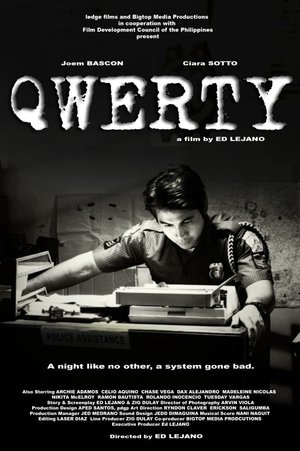 6.4
6.4Qwerty(en)
The movie is a fictionalized account of a disgruntled cop who has been wrongly implicated in a torture video that went viral. It begins on his last night of duty, as he is about to leave for abroad for better job prospects.
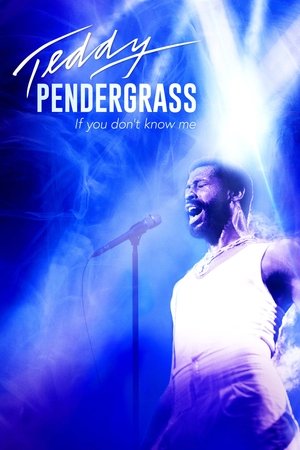 6.3
6.3Teddy Pendergrass: If You Don't Know Me(en)
The untold and ultimately inspiring story of legendary singer, Teddy Pendergrass, the man poised to be the biggest R&B artist of all time until the tragic accident that changed his life forever at the age of only 31.
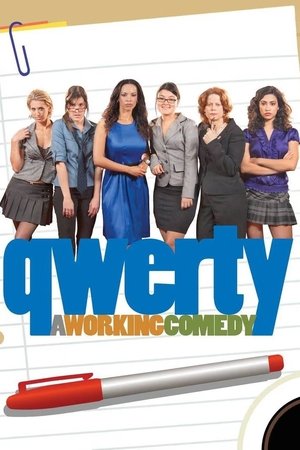 5.7
5.7Qwerty(en)
Conglomerated Assets, a brokerage firm is sinking fast as its CEO checks out and leaves the company to his inept film school drop out son. Enter Quincy, Waverly, Erica, Rudy, Tina and Yasmine. Team QWERTY--six sexy secretaries that must save the day.
Qwerty(en)
A mentally-afflicted young man is accused of murdering his longtime benefactor. The real truth of what happened lies in his mad obsession with his supposed victim's old typewriter, on which he types relentlessly, day and night.
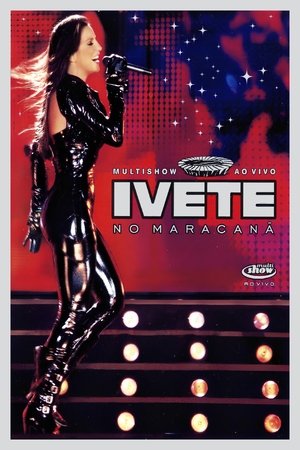 9.0
9.0Multishow ao Vivo: Ivete no Maracanã(pt)
This Ivete Sangalo concert at Rio de Janeiro's legendary Maracanã Stadium, and the subsequent DVD/CD releases, constituted the year's main event in Brazilian pop music. Sangalo rose to fame with the axé band Banda Eva, and since 1999 has embarked on an unstoppable solo career, making her the undisputed queen of pop in Brazil in terms of sales and popularity, as well as gathering countless industry and society awards. Accordingly, Sangalo put on a show at the Maracanã that should leave no one envious of the megaconcerts offered in Rio by Madonna, Michael Jackson, and the Rolling Stones. Alternating some of her many hits with new songs or new versions of old material, Sangalo burns through the set with her characteristic enthusiasm and infectious star magnetism, incessantly cheered on by an adoring audience of 55,000. The album has sold over 800,000 copies in Brazil (being certified Diamond), and features the single "Deixo". Recorded on December 16, 2006.
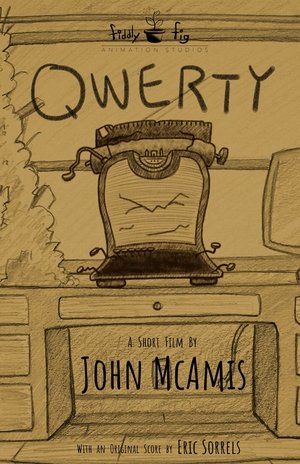 5.9
5.9Qwerty(en)
A grieving young inventor finds solace in repairing an antique typewriter.
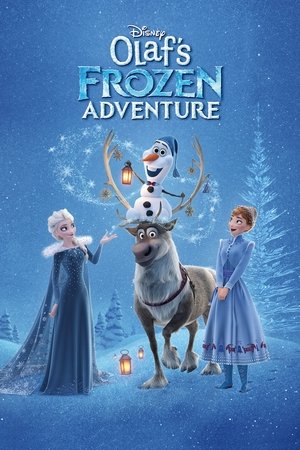 6.5
6.5Olaf's Frozen Adventure(en)
Olaf is on a mission to harness the best holiday traditions for Anna, Elsa, and Kristoff.
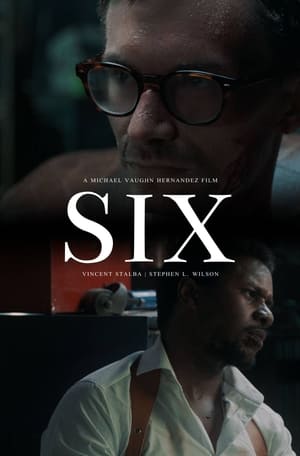 7.8
7.8Moments: Six(en)
A serial killer and the detective who tracked him down find themselves in an unexpected stalemate.
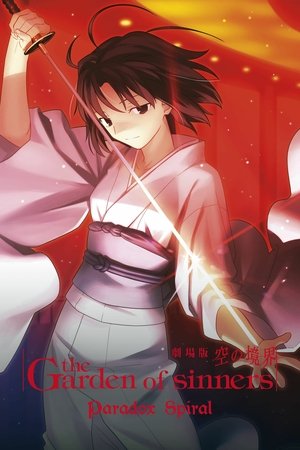 7.7
7.7The Garden of Sinners: Paradox Spiral(ja)
Tomoe Enjou is attacked by bullies from his old school and saved by Shiki Ryougi. He asks her to hide him at her place and admits that he killed someone. Several days later, there are still no broadcasts about the murder as if it didn't happen... and when the victims are found, they're alive and unharmed.
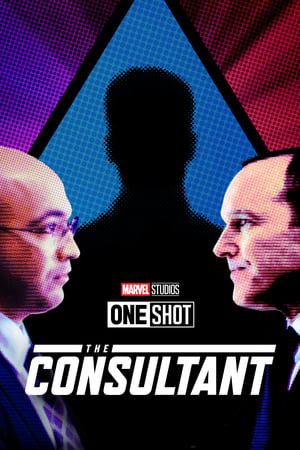 6.3
6.3Marvel One-Shot: The Consultant(en)
Agent Coulson informs Agent Sitwell that the World Security Council wishes Emil Blonsky to be released from prison to join the Avengers Initiative. As Nick Fury doesn't want to release Blonsky, the two agents decide to send a patsy to sabotage the meeting...
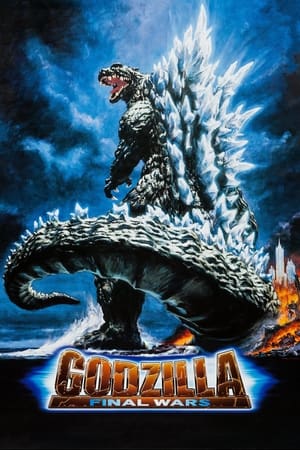 7.1
7.1Godzilla: Final Wars(ja)
Humanity finally rids themselves of Godzilla, imprisoning him in an icy tomb in the South Pole. All is peaceful until various monsters emerge to lay waste to Earth's cities. Overwhelmed, humanity is seemingly saved by a race of benevolent aliens known as Xiliens. But not all is what it seems with these bizarre visitors. If humanity wishes to survive, they must reluctantly resurrect their most hated enemy, Godzilla.
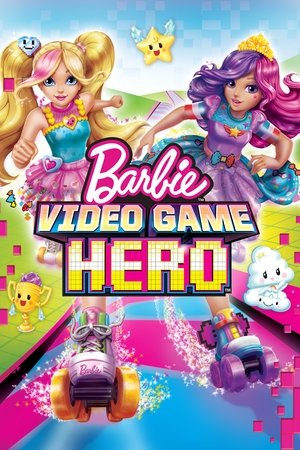 6.9
6.9Barbie Video Game Hero(en)
When Barbie magically gets pulled into her favorite video game, she is excited to see she's transformed into a fun roller-skating character. In the game, she meets Cutie, the lovable cloud-shaped friend, and Bella, the roller-skating princess. Together, they soon discover a mischievous emoji is trying to take control of the game. As they travel from level to level, Barbie must rely on her amazing gaming skills and out-of-the box thinking to save her team and beat the game!
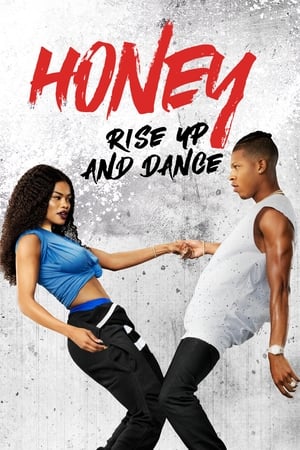 6.9
6.9Honey: Rise Up and Dance(en)
Street dancer Skyler comes out of the shadow of her trained dancer sister, Tosha, & joins a dance competition with the Honey dance studio; the prize is a college scholarship.
Fight Club (Russian version)(ru)
The Russian version of the movie "Fight Club" is not just a Russian version of a well-known cult film, it is the result and of the hard work of two young men and their love for cinema, Alexander Kukhar (GOLOBON-TV) and Dmitry Ivanov (GRIZLIK FILM) , who are responsible for this project, from the development of its idea and the selection of the cast, to the organization of filming and financial support. Filming lasted a whole year. Everyday work, constant trips, searching for suitable film sets and an exhausting schedule - all this was not in vain and resulted in an unusually amazing and original project - the film "Fight Club", created in the very heart of southern Russia, in the city of Krasnodar, by two young people
 7.3
7.3The Little Guy(en)
Groot discovers a miniature civilization that believes the seemingly enormous tree toddler is the hero they’ve been waiting for.
 8.6
8.6I Take a Step(ru)
A dyslexic graduate of a pedagogical institute is forced to become a teacher of Russian language and literature in a secondary school. Despite the illness, he manages to establish contact with the students, who in the end will help him keep his job.
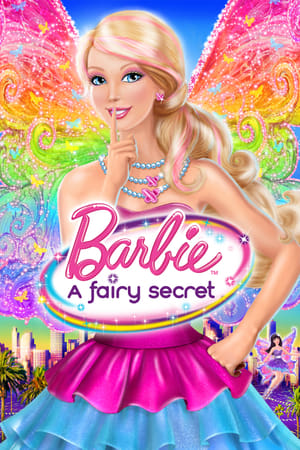 6.9
6.9Barbie: A Fairy Secret(en)
Get ready for Barbie: A Fairy Secret, an amazing adventure with Barbie where she discovers there are fairies living secretly all around us! When Ken is suddenly whisked away by a group of fairies, Barbie's two fashion stylist friends reveal they are actually fairies and that Ken has been taken to a magical secret fairy world not far away! Barbie and her rival Raquelle take off with the fairy friends on an action-packed journey to bring him back. Along the way they must stick together and learn that the real magic lies not just in the fairy world itself, but in the power of friendship.
Similar Movies
 6.0
6.0A Captain's Honor(fr)
During a televised debate on the Algerian war in the early 1980s, Professor Paulet denounced the methods of Captain Caron, killed in action in 1957. The widow of the captain, Patricia, decided to file a defamation suit.
 6.0
6.0The Panafrican Festival in Algiers(ar)
Festival panafricain d'Alger is a documentary by William Klein of the music and dance festival held 40 years ago in the streets and in venues all across Algiers. Klein follows the preparations, the rehearsals, the concerts… He blends images of interviews made to writers and advocates of the freedom movements with stock images, thus allowing him to touch on such matters as colonialism, neocolonialism, colonial exploitation, the struggles and battles of the revolutionary movements for Independence.
 7.0
7.0143 Sahara Street(fr)
Alone in a small white house on the edge of national road 1, the Trans-Saharan road, which connects Algiers to Tamanrasset crossing the immensity of the desert, Malika, 74, one day opened her door to the director Hassen Ferhani, who came there to scout with his friend Chawki Amari, journalist at El Watan and author of the story Nationale 1 which relates his journey on this north-south axis of more than 2000 km. The Malika of Amari's novel, which Ferhani admits to having first perceived as a "literary fantasy", suddenly takes on an unsuspected human depth in this environment naturally hostile to man. She lends herself to the film project as she welcomes her clients, with an economy of gestures and words, an impression reinforced by the mystery that surrounds her and the rare elements of her biography which suggest that she is not from the region, that she left the fertile north of Algeria to settle in the desert where she lives with a dog and a cat.
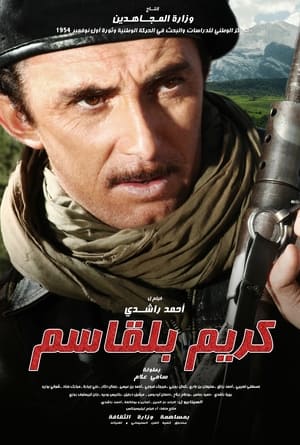 10.0
10.0Krim Belkacem(ar)
This film retraces the combat journey of Krim Belkacem, one of the leading figures of the Algerian War. When he left the Dellys barracks in October 1945, the day after the Second World War, Krim Belkacem was 23 years old. He is a man revolted by the May massacres in Sétif, Guelma, Kherrata and several other localities in the ravaged country. But it is also and above all a young Algerian who questions the future of Algeria. On March 21, 1947, Krim at the age of 25, he dug up his "Sten" submachine gun, he took action against the boss of his douar who was none other than his cousin. He goes into hiding with six companions. He meshes this entire part of Algeria with a dense and dense network with the sole objective of taking action which will lead to the outbreak of the armed struggle on November 1, 1954.
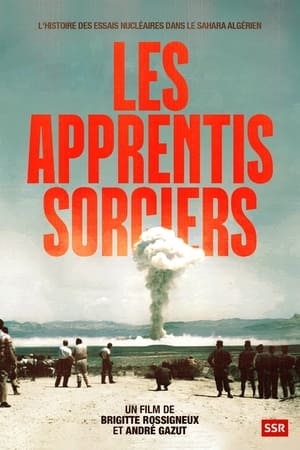 10.0
10.0The Sorcerer's Apprentice(fr)
60 years ago, in the Algerian desert, an atomic bomb, equivalent to three or even four times Hiroshima, exploded. Named the “Blue Gerboise”, it was the first atomic bomb tested by France, and of hitherto unrivaled power. This 70 kiloton plutonium bomb was launched in the early morning, in the Reggane region, in southern Algeria, during the French colonial era. If this test allowed France to become the 4th nuclear power in the world, it had catastrophic repercussions. France had, at the time, certified that the radiation was well below the standard safety threshold. However, in 2013, declassified files revealed that the level of radioactivity had been much higher than announced, and had been recorded from West Africa to the south of Spain.
 7.6
7.6The Zerda or the Songs of Forgetting(fr)
“La Zerda and the songs of oblivion” (1982) is one of only two films made by the Algerian novelist Assia Djebar, with “La Nouba des femmes du mont Chenoua” (1977). Powerful poetic essay based on archives, in which Assia Djebar – in collaboration with the poet Malek Alloula and the composer Ahmed Essyad – deconstructs the French colonial propaganda of the Pathé-Gaumont newsreels from 1912 to 1942, to reveal the signs of revolt among the subjugated North African population. Through the reassembly of these propaganda images, Djebar recovers the history of the Zerda ceremonies, suggesting that the power and mysticism of this tradition were obliterated and erased by the predatory voyeurism of the colonial gaze. This very gaze is thus subverted and a hidden tradition of resistance and struggle is revealed, against any exoticizing and orientalist temptation.
 7.9
7.9The Battle of Algiers(it)
Tracing the struggle of the Algerian Front de Liberation Nationale to gain freedom from French colonial rule as seen through the eyes of Ali from his start as a petty thief to his rise to prominence in the organisation and capture by the French in 1957. The film traces the rebels' struggle and the increasingly extreme measures taken by the French government to quell the revolt.
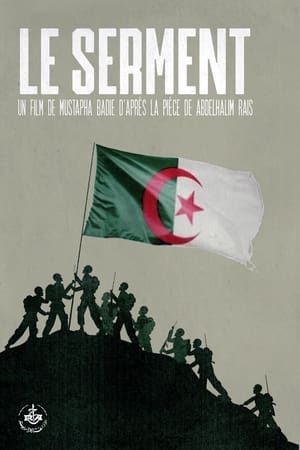 10.0
10.0Le Serment(ar)
The Oath, a TV film produced by Algerian television in 1963 following the end of the war of independence, tells the story of young Algerians who joined the resistance after the bloody repressions of May 1945 in Constantinois by the French colonial army .
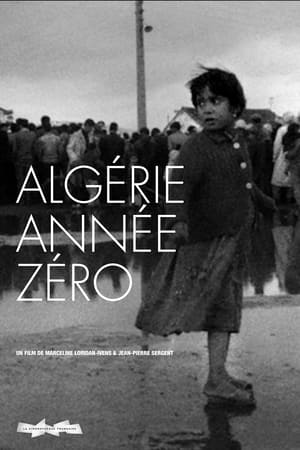 10.0
10.0Algeria, Year Zero(fr)
Documentary on the beginnings of Algerian independence filmed during the summer of 1962 in Algiers. The film was banned in France and Algeria but won the Grand Prize at the Leipzig International Film Festival in 1965. Out of friendship, the production company Images de France sent an operator, Bruno Muel, who later declared: "For those who were called to Algeria (for me, 1956-58), participating in a film on independence was a victory over horror, lies and absurdity. It was also the beginning of my commitment to the cinema."
 6.3
6.3Intimate Enemies(fr)
A drama following a French platoon during Algeria's war of independence.
 6.8
6.8CHoosing at Twenty(fr)
Between 1954-1962, one hundred to three hundred young French people refused to participate in the Algerian war. These rebels, soldiers or conscripts were non-violent or anti-colonialists. Some took refuge in Switzerland where Swiss citizens came to their aid, while in France they were condemned as traitors to the country. In 1962, a few months after Independence, Villi Hermann went to a region devastated by war near the Algerian-Moroccan border, to help rebuild a school. In 2016 he returned to Algeria and reunited with his former students. He also met French refractories, now living in France or Switzerland.
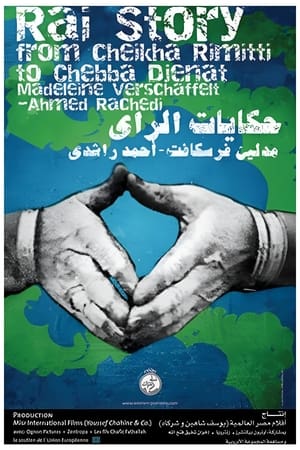 10.0
10.0Raï Story: From Cheikha Rimitti to Cheba Djenet(ar)
Raï Story is a musical journey in search of the Raï legend, Cheikha Remitti, in Oran, Algeria, where the Raï musical tradition began. In 1923, the first Raï singers performed behind screens during ceremonies to protect their identity. It was only when the music of singer Cheikha Remitti began to gain popularity among the general public that Raï music was made public, in the 1940s. Cheikha Remitti, who lives between Paris and Oran, is nowhere to be found, the filmmakers then decide to meet producers, musicians, singers like Cheba Dalila or Cheba Djenet, for whom Remitti created a wake. The opportunity, through these unique stories, illustrated with archive images, to retrace the important place of women in this musical tradition and the transformation of Raï music from the 1960s to 2000.
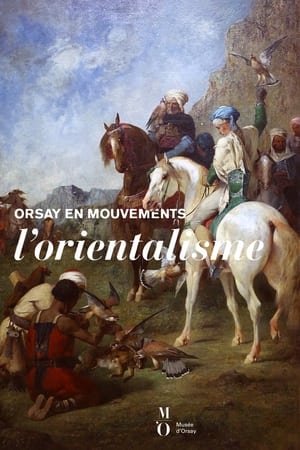 10.0
10.0L'Orientalisme(fr)
Orientalism is a literary and artistic movement born in Western Europe in the 18th century. Through its scale and popularity, throughout the 19th century, it marked the interest and curiosity of artists and writers for the countries of the West (the Maghreb) or the Levant (the Middle East). Orientalism was born from the fascination of the Ottoman Empire and followed its slow disintegration and the progression of European colonizations. This exotic trend is associated with all the artistic movements of the 19th century, academic, romantic, realistic or even impressionist. It is present in architecture, music, painting, literature, poetry... Picturesque aesthetics, confusing styles, civilizations and eras, orientalism has created numerous clichés and clichés that we still find today in literature or cinema.
 6.8
6.8Far from Men(fr)
A French teacher in a small Algerian village during the Algerian War forms an unexpected bond with a dissident who is ordered to be turned in to the authorities.
 7.0
7.0Jamila, the Algerian(ar)
Djamila, a young Algerian woman living with her brother Hadi and her uncle Mustafa in the Casbah district of Algiers under the French occupation of Algeria, sees the full extent of injustice, tyranny and cruelty on his compatriots by French soldiers. Jamila's nationalist spirit will be strengthened when French forces invade her university to arrest her classmate Amina who commits suicide by ingesting poison. Shortly after the prominent Algerian guerrilla leader Youssef takes refuge with her, she realizes that her uncle Mustafa is part of this network of anti-colonial rebel fighters. Her uncle linked her to the National Liberation Front (FLN). A series of events illustrate Jamila's participation in resistance operations against the occupier before she was finally captured and tortured. Finally, despite the efforts of her French lawyer, Jamila is sentenced to death...
 10.0
10.0The Honour of the Tribe(fr)
Like every year in Zitouna, a bear handler passes by. With his creature, he comes to challenge the small community. And like every year, it is Slimane El Mabrouk who defends the honor of the tribe. But this time, he dies, leaving two orphans, Omar and Ourida. Robbed of their inheritance, the children will grow up alone. The years pass, the French army settles in, and with it, the war. Mysteriously, one day, after the murder of a French legionnaire, Omar disappears into the bush, while his sister dies in childbirth. Omar will return to the village, much later, once independence has been acquired, as a representative of power and with this enigmatic formula: "You must know that the Revolution has not forgotten you". Personal revenge? Sincere desire to bring progress and modernity? ... The inhabitants of Zitouna, upset in their ancestral way of life, will not be long in having an answer to their questions.
 10.0
10.0Frantz Fanon, trajectoire d'un révolté(fr)
Frantz Fanon alone embodies all the issues of French colonial history. Martinican resistance fighter, he enlisted, like millions of colonial soldiers, in the Free Army out of loyalty to France and the idea of freedom that it embodies for him. A writer, he participated in the bubbling life of Saint-Germain with Césaire, Senghor and Sartre, debating tirelessly on the destiny of colonized peoples. As a doctor, he revolutionized the practice of psychiatry, seeking in the relations of domination of colonial societies the foundations of the pathologies of his patients in Blida. Activist, he brings together through his action and his history of him, the anger of peoples crushed by centuries of colonial oppression. But beyond this exceptional journey which makes sensitive the permanence of French colonialism in the Lesser Antilles at the gates of the Algerian desert, he leaves an incomparable body of work which has made him today one of the most studied French authors across the Atlantic.
